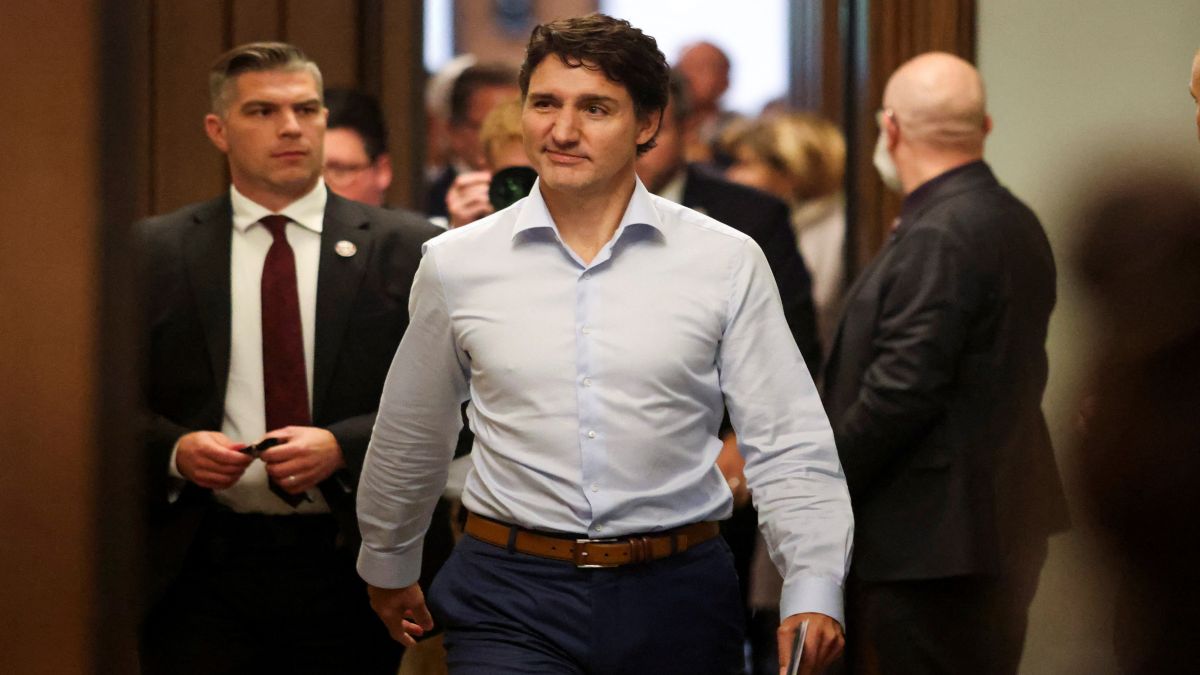) |
|
The political landscape in Canada is experiencing a tumultuous period as Prime Minister Justin Trudeau faces mounting pressure to relinquish his leadership position. With his approval ratings plummeting to record lows, Trudeau is now confronted with dissent from within his own party, the Liberal Party of Canada. A critical meeting on October 23 saw approximately 20 Liberal MPs present a letter demanding his resignation by October 28, adding significant weight to the calls for his departure. This event highlights the growing discontent towards Trudeau's leadership and raises questions about the future of the Liberal Party in the upcoming elections.
The catalyst for this dissent lies in Trudeau's declining popularity, which has reached a nadir during his ninth year as Prime Minister. This downturn is attributed to a confluence of factors, including the cost of living crisis, a housing crisis that has intensified affordability concerns, and the diplomatic fallout with India, which has further eroded public trust. Moreover, Trudeau's social policies, often characterized as 'woke', have attracted criticism for their perceived detrimental impact on Canada's social fabric. The legalization of possession of small amounts of hard drugs, such as heroin, cocaine, and fentanyl, in British Columbia, has been a particularly contentious policy.
The dissent within the Liberal Party is a stark indicator of Trudeau's weakened position. In September, the New Democratic Party severed ties with the Liberals, signifying a significant loss of support. This move, coupled with the recent special election losses in Montreal and Toronto, traditionally safe seats for the Liberals, underscores the growing unease surrounding Trudeau's leadership. Furthermore, a recent Nanos Research poll revealed that the Liberals only enjoy 23% of public support, trailing behind the Conservatives led by Pierre Poilievre, who command 39% support. This stark reality suggests a challenging electoral future for Trudeau and the Liberal Party.
Despite the escalating pressure and calls for his resignation, Trudeau has maintained that he will remain in his position. He has previously stated his intention to contest and win the next election, scheduled to take place before October 2025. While the Liberal Party currently lacks a formal mechanism to remove their leader outside of electoral loss, incapacitation, or death, Trudeau's capacity to navigate this turbulent period and maintain his hold on power remains uncertain. The coming days will be critical in determining his future and the direction of the Liberal Party.
Should Trudeau choose to step down before the next election, two potential pathways exist. He could remain in office until a new leader is chosen or resign immediately. In the latter scenario, an interim leader would assume the leadership role while a leadership race ensues. In the event of Trudeau's departure, the Liberal Party's national president would have 27 days to convene a board meeting to select their next leader. A range of potential candidates have emerged, including Deputy Prime Minister Chrystia Freeland, Industry Minister François-Philippe Champagne, Foreign Affairs Minister Mélanie Joly, Housing Minister Sean Fraser, Public Safety Minister Dominic LeBlanc, and Treasury Board President Anita Anand. Former Bank of Canada governor Mark Carney and former British Columbia Premier Christy Clark have also expressed interest in a potential leadership run.
The current political climate in Canada is characterized by uncertainty and a sense of change. As Trudeau navigates this complex landscape, the fate of the Liberal Party and the future of Canadian politics hang in the balance. The coming weeks will be crucial in determining whether Trudeau can weather the storm and retain his leadership position or whether the Liberal Party will usher in a new era of leadership.
Source: How October 28 may be Justin Trudeau’s last day in power, what happens next
